If you’re like most boat owners, you want to ensure your vessel is well-protected during the colder months. Winter storage is a great way to keep your boat in good condition and avoid any unnecessary damage. Here are a few tips on how to prepare your boat for winter storage.
Whit 5 minutes of reading the article, Tood Vogel will answer the question “How to prepare your boat for winter storage? 15 Points to Consider When Preparing Your Boat for Winter Storage” and more relevant knowledge. Let’s find out together!
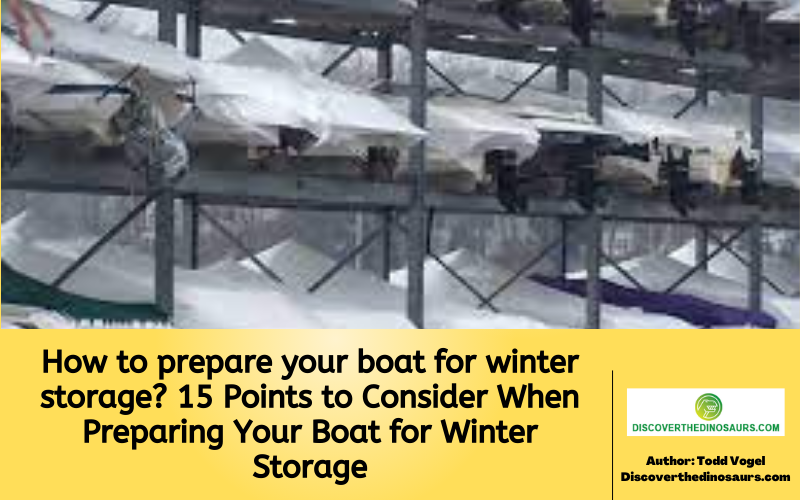
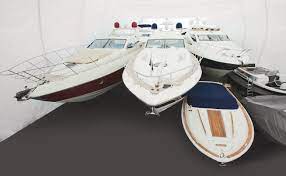
how to prepare your boat for winter storage
Prepare Your Boat for Winter Storage Using These Steps
Step 1: Flush and Rinse the Engine
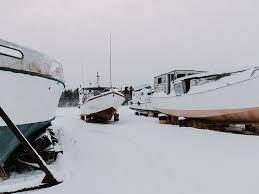
Step 1: Flush and Rinse the Engine
Thoroughly flush and rinse the engine with fresh water to remove salt, dirt, and other debris. Use a garden hose with a spray nozzle attachment or pressure washer for best results. Be sure to get all the nooks and crannies, including the cooling passages, raw-water intake screen, and propeller shaft. A boat engine left unrinsed over the winter is susceptible to corrosion.
Step 2: Fuel Storage Tanks
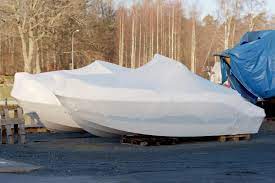
Step 2: Fuel Storage Tanks
If you have fuel storage tanks, they must be thoroughly cleaned and dried before storing. When left in a half-full or empty state over winter, the fuel will evaporate and leave behind rust particles that can clog filters when you try to restart your boat next spring.
Step 3: Obtaining Batteries

Step 3: Obtaining Batteries
Get new batteries or have your old ones professionally serviced. Batteries degrade over time, so it’s best to start with fresh ones in the spring. If you must keep your old batteries, make sure they’re charged and have enough fluid to last through the winter.
Step 4: Cleaning and drying the hull
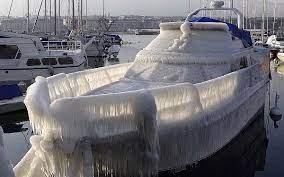
Step 4: Cleaning and drying the hull
Clean and dry the hull to prevent the growth of mildew and other organisms. A pressure washer is the best tool for this job, but you can also use a garden hose with a spray nozzle attachment. Be sure to get all the nooks and crannies, including the bilge area. Once the hull is clean, apply a coat of wax to protect the gelcoat from UV damage.
Step 5: Covering the boat
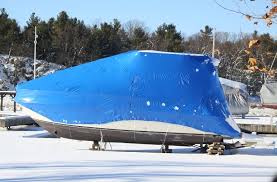
Step 5: Covering the boat
Once the boat is clean and dry, cover it with a tarp or shrink wrap to protect it from the elements. Be sure to secure the cover tightly so that it doesn’t blow away in the wind. You may also want to place a block of wood under the hull to keep it from sagging over winter.
Step 6: Ensure safety
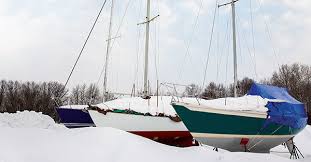
Step 6: Ensure safety
Before storing your boat for winter, take some time to ensure that everything is working properly and there are no safety hazards. This means checking the bilge pump and bilge blower, making sure that the running lights are in good condition, and testing all batteries to make sure they still hold a charge. If you notice anything that needs to be repaired or replaced, do it before putting the boat away for winter.
If you follow these steps, you can rest assured that your boat will be well-prepared for winter storage, enabling you to hit the water again as soon as spring rolls around. So get started today by flushing and rinsing your engine, cleaning and drying your hull, and covering your boat with a tarp or shrink wrap. With a little time and effort, your boat will be ready for another season of exciting adventures on the water!
13 Points to Consider When Preparing Your Boat for Winter Storage

13 Points to Consider When Preparing Your Boat for Winter Storage
Keeping Your Boat on a Trailer at Home
Whether you keep your boat at a marina or on a trailer at home, there are important steps to take in order to prepare it for winter storage. Here are some things to consider when preparing your boat for the cold months ahead.
1. Inspect your boat and trailer thoroughly, looking for any potential damage that may need to be repaired before winter storage. This includes checking the hull, keel, rudder, propeller, engine, and any other parts of your boat that may be susceptible to wear and tear during the off-season.
2. Make sure all of your boat’s systems are functioning properly before storing it away for the winter. This includes checking battery levels and ensuring that there is fresh fuel in the tank.
3. Clean your boat thoroughly, inside and out, before winter storage. This will help prevent mold and mildew from growing during the off-season and also make it easier to inspect for any potential damage or wear and tear.
4. Protect your hull with a coat of wax or sealant before storing your boat for the winter. Depending on where you live, additional measures may be necessary to protect your hull from road salt and other damaging elements that can accumulate when your boat is stored outdoors on a trailer.
5. Empty all water tanks that are connected to the plumbing system in order to prevent freezing during the cold months ahead. You may also want to flush out your pipes and drains with soapy water to prevent clogs.
6. Remove all food and perishables from your boat before winter storage. This includes anything that is stored in the refrigerator, freezer, or pantry.
7. Disconnect any electronics that are on board your boat before storing it for the winter. This includes items such as televisions, radios, and computers.
8. Take down any canvas or sails that are on board your boat before winter storage to prevent them from becoming damaged by the elements.
9. Check your boat’s insurance policy to make sure it is up to date and will cover you during the off-season. You may also want to consider investing in a storage insurance policy to protect your boat while it is in storage.
10. Make a list of all the items you need to do in order to prepare your boat for winter storage. This will help you stay organized and make sure that you don’t forget anything important.
11. Gather all the supplies you need for winter storage, such as tarps, ropes, and bungee cords.
12. If you plan on storing your boat outdoors on a trailer, make sure the tires are inflated properly and the trailer is securely hitched to your vehicle.
13. Most importantly, consult with a professional if you have any questions or concerns about preparing your boat for winter storage. They can help you determine the best course of action for protecting your investment during the off-season.
When preparing your boat for winter storage, it is important to take steps to protect it from the elements and ensure that all of its systems are functioning properly. This may include cleaning your hull and keel, waxing or sealing the hull, flushing out your pipes and drains, removing food and perishable items from your boat, and checking your insurance policy to make sure you have the coverage you need. Additionally, it is crucial to consult with a professional who can guide you through the process of preparing your boat for winter storage and answer any questions you may have along the way. With these tips in mind, you can help ensure that your boat stays safe and well-protected during the off-season.
Keeping Your Boat in Your Garage at Your Residence
1. Park your boat in your garage as close to the door as possible. This will give you more space to work on it and make it easier to move in and out of the garage.
2. Cover your boat with a tarp or plastic sheeting to protect it from dust, dirt, and debris.
3. disconnect any electronics that are on board your boat before storing it in your garage. This includes items such as televisions, radios, and computers.
4. Take down any canvas or sails that are on board your boat before storing it in your garage to prevent them from becoming damaged by the elements.
5. Inspect your boat for any potential damage or wear and tear before storing it for the winter. This includes checking the hull, keel, and sails for any cracks, holes, or tears.
6. Repair any damage that you find before storing your boat for the winter. This will help prevent further damage from occurring and help keep your boat in good condition.
7. Clean your boat thoroughly before storing it in your garage. This includes washing the hull, deck, and interior of your boat with soap and water.
8. Make sure all of the compartments on your boat are dry before storing it in your garage. This includes the bilge area, storage compartments, and cabinets.
9. Place a dehumidifier in your garage to help prevent moisture buildup inside of your boat.
10. Cover any openings on your boat, such as ports, hatches, and vents, with plastic wrap or tape to keep out moisture and pests.
11. Invest in a boat storage lift to keep your boat off the ground and away from potential flooding.
12. Most importantly, consult with a professional if you have any questions or concerns about storing your boat in your garage. They can help you determine the best course of action for protecting your investment during the off-season.
When storing your boat in your garage, it is important to take steps to protect it from the elements and ensure that all of its systems are functioning properly. This may include covering your boat with a tarp or plastic sheeting, disconnecting any electronics that are on board, taking down any canvas or sails, and inspecting your boat for any potential damage. Additionally, it is crucial to consult with a professional who can guide you through the process of storing your boat in your garage and answer any questions you may have along the way. With these tips in mind, you can help ensure that your boat stays safe and well-protected during the off-season.
Dedicated Boat Storage is available (Dry Stacked Storage)
1. Find a reputable storage facility that offers dry stacked storage for boats.
2. Make sure the facility is clean and well-maintained.
3. Ask about the security measures that are in place to protect your boat while it is being stored.
4. Make sure the facility has insurance in case of any damage to your boat while it is in their care.
5. Ask about the fees associated with storing your boat at the facility.
6. Most importantly, consult with a professional if you have any questions or concerns about storing your boat at a dedicated storage facility. They can help you determine if this option is right for you and guide you through the process of preparing your boat for storage. With the right preparation and planning, you can ensure that your boat is well-protected during the off-season.
Boat Preparation in Advance of a Prolonged Boating Season
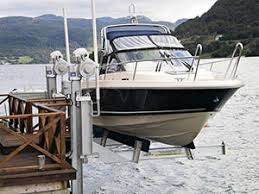
Boat Preparation in Advance of a Prolonged Boating Season
1. Check the hull, keel, and sails for any cracks, holes, or tears.
2. Repair any damage that you find before storing your boat for the winter. This will help prevent further damage from occurring and help keep your boat in good condition.
3. Clean your boat thoroughly before storing it in your garage. This includes washing the hull, deck, and interior of your boat with soap and water.
4. Make sure all of the compartments on your boat are dry before storing it in your garage. This includes the bilge area, storage compartments, and cabinets.
5. Place a dehumidifier in your garage to help prevent moisture buildup inside of your boat.
6. Cover any openings on your boat, such as ports, hatches, and vents, with plastic wrap or tape to keep out moisture and pests.
7. Invest in a boat storage lift to keep your boat off the ground and away from potential flooding.
8. Most importantly, consult with a professional if you have any questions or concerns about storing your boat in your garage. They can help you determine the best course of action for protecting your investment during the off-season.
When storing your boat in your garage, it is important to take steps to protect it from the elements and ensure that all of its systems are functioning properly. This may include covering your boat with a tarp or plastic sheeting, disconnecting any electronics that are on board, taking down any canvas or sails, and inspecting your boat for any potential damage. Additionally, it is crucial to consult with a professional who can guide you through the process of storing your boat in your garage and answer any questions you may have along the way. With these tips in mind, you can help ensure that your boat stays safe and well-protected during the off-season.
Prepare your boat for winter storage in Canada by following these steps
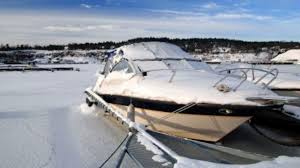
Prepare your boat for winter storage in Canada by following these steps
1. Find a reputable storage facility that offers dry stacked storage for boats. This will help protect your boat from the elements and ensure that it is properly secured.
2. Make sure the facility is clean and well-maintained. This will help reduce the risk of damage to your boat while it is in storage.
3. Ask about the security measures that are in place to protect your boat while it is being stored. This will help you feel confident that your boat is safe while it is not in use.
4. Make sure the facility has insurance in case of any damage to your boat while it is in their care. This will give you peace of mind knowing that you are covered in the event of an accident.
5. Ask about the fees associated with storing your boat at the facility. This will help you budget for the cost of winter storage.
6. Most importantly, consult with a professional if you have any questions or concerns about storing your boat at a dedicated storage facility. They can help you determine if this option is right for you and guide you through the process of preparing your boat for storage. With the right preparation and planning, you can ensure that your boat is well-protected during the off-season.
Plan ahead for winter storage by doing it yourself
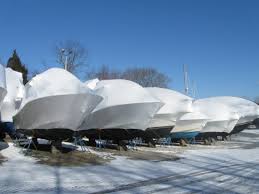
Plan ahead for winter storage by doing it yourself
The advantages of doing it yourself are that you can save money and have more control over the process.
1. Choose a location that is well-ventilated and away from any heat sources to avoid any potential fire hazards.
2. Make sure the area is clean and free of any debris that could damage your boat.
3. Cover your boat with a tarp or plastic sheeting to protect it from the elements.
4. Disconnect any electronics that are on board and remove any batteries.
5. Take down any canvas or sails to prevent them from becoming damaged during storage.
6. Inspect your boat for any potential damage and make repairs as necessary. This will help prevent further damage from occurring while your boat is in storage.
7. Finally, consult with a professional if you have any questions or concerns about storing your boat yourself. They can provide guidance and recommendations to help ensure that the process is done correctly and safely. With the right preparation and planning, you can prepare your boat for winter storage on your own and save money in the process.
Maintaining your boat’s fuel and water systems is essential for winter storage
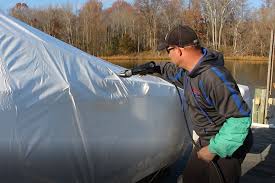
Maintaining your boat’s fuel and water systems is essential for winter storage
1. Add a fuel stabilizer to your boat’s gas tank to help prevent fuel degradation and keep the engine in good working condition.
2. Drain the water from your boat’s system and add an antifreeze solution to help protect against freezing temperatures.
3. Inspect all of the hoses and fittings on your boat for any potential leaks or damage. This will help prevent any further issues from occurring while your boat is in storage.
4. Finally, consult with a professional if you have any questions or concerns about maintaining your boat’s fuel and water systems during winter storage. They can provide guidance and recommendations to help ensure that the process is done correctly and safely. With the right preparation and planning, you can maintain your boat’s fuel and water systems during off-season storage and keep it in good condition for the coming season.
Winterization that is friendly to the environment and your boat
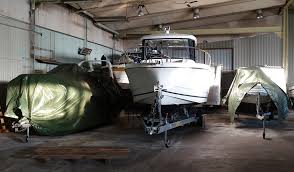
Winterization that is friendly to the environment and your boat
1. Use environmentally-friendly or biodegradable antifreeze solutions to protect your boat’s water system from freezing temperatures. This will help reduce the risk of environmental damage and ensure that your boat is protected during storage.
2. Clean, wax, and polish your boat before winter storage to help prevent corrosion and other types of damage while it is in storage.
3. Inspect all hoses and fittings on the outside of the boat for any potential leaks or damage. This will help reduce the risk of moisture infiltration into sensitive areas while your boat is in storage.
4. Finally, consult with a professional if you have any questions or concerns about protecting your boat during winterization. They can provide guidance and recommendations to help ensure that the process is done correctly and safely. With the right preparation and planning, you can winterize your boat in an environmentally-friendly way that will help protect it during storage.

Solutions for storing items during the winter
1. Choose a storage location that is dry, well-ventilated, and out of direct sunlight to help prevent any damage to your belongings.
2. Place all items in airtight containers or bags to help prevent moisture damage.
3. Label all containers with the contents and date to help keep track of what is inside.
4. Finally, consult with a professional if you have any questions or concerns about storing items during the winter. They can provide guidance and recommendations to help ensure that the process is done correctly and safely. With the right preparation and planning, you can store your belongings safely during the winter months.
F.A.Q about “How to prepare your boat for winter storage”
I’m curious about the products you use to prepare your vessel for cold weather.
Prepare for boating in cold water by always wearing a PFD that is securely fastened to your body. Wearing layers of clothing will also help to keep you warm. Equip your boat with a means of re-entry (ladder, sling, or other similar device) in case you should fall into the water while sailing.
Should you remove the batteries from your yacht for the winter?
Batteries should be removed and stored in a cool, dry location where they will not freeze. Recommended for use on wood surfaces, such as those found in garages or storage facilities. Ideally, batteries should be trickle charged or recharged on a monthly basis. This avoids self-discharge and increases the lifespan of the battery.
Is it permissible to leave a boat outside throughout the winter?
If you want to keep your boat outside over the winter, it is certainly achievable. Regardless of whether you choose to do so, it is critical that you totally remove your boat from the water since ice and extremely cold water can cause significant damage to your boat.
What is the best way to prepare a boat for the season?
A few of the most crucial items to put on your list are as follows:
-
- Cleaning chores of a general kind (hull, deck, topsides)
-
- Drains should be checked for obstructions.
-
- Wash your boat and apply a coat of wax to keep the paint from fading.
-
- Clean and re-oil your wood finishes to keep them looking their best.
-
- Fixtures such as windows, hatches, blinds, and any other sections should be well cleaned.
Is it safe to leave a trickle charger running throughout the winter?
Trickle chargers are capable of being left connected to a battery for an infinite period of time. These would be utilized on a vehicle that is not used on a regular basis or that is being stored for the winter or the summer months. In the event that the vehicle is required in an emergency or other unplanned situation, a trickle charger designed expressly for this purpose is left on overnight.
Conclusion
Winter storage is an important part of boat ownership, and if done correctly can help your boat stay in good condition for years to come. By following these simple steps, you can make the process as easy and stress-free as possible. Have a safe and happy winter![/caption]
Prepare Your Boat for Winter Storage Using These Steps
Step 1: Flush and Rinse the Engine

Step 1: Flush and Rinse the Engine
Thoroughly flush and rinse the engine with fresh water to remove salt, dirt, and other debris. Use a garden hose with a spray nozzle attachment or pressure washer for best results. Be sure to get all the nooks and crannies, including the cooling passages, raw-water intake screen, and propeller shaft. A boat engine left unrinsed over the winter is susceptible to corrosion.
Step 2: Fuel Storage Tanks
Step 2: Fuel Storage Tanks
If you have fuel storage tanks, they must be thoroughly cleaned and dried before storing. When left in a half-full or empty state over winter, the fuel will evaporate and leave behind rust particles that can clog filters when you try to restart your boat next spring.
Step 3: Obtaining Batteries

Step 3: Obtaining Batteries
Get new batteries or have your old ones professionally serviced. Batteries degrade over time, so it’s best to start with fresh ones in the spring. If you must keep your old batteries, make sure they’re charged and have enough fluid to last through the winter.
Step 4: Cleaning and drying the hull
Clean and dry the hull to prevent the growth of mildew and other organisms. A pressure washer is the best tool for this job, but you can also use a garden hose with a spray nozzle attachment. Be sure to get all the nooks and crannies, including the bilge area. Once the hull is clean, apply a coat of wax to protect the gelcoat from UV damage.
Step 5: Covering the boat
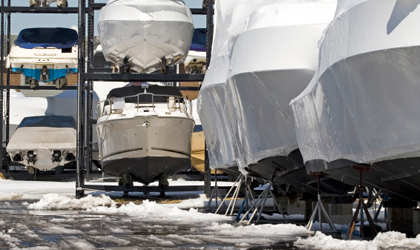
Step 5: Covering the boat
Once the boat is clean and dry, cover it with a tarp or shrink wrap to protect it from the elements. Be sure to secure the cover tightly so that it doesn’t blow away in the wind. You may also want to place a block of wood under the hull to keep it from sagging over winter.
Step 6: Ensure safety
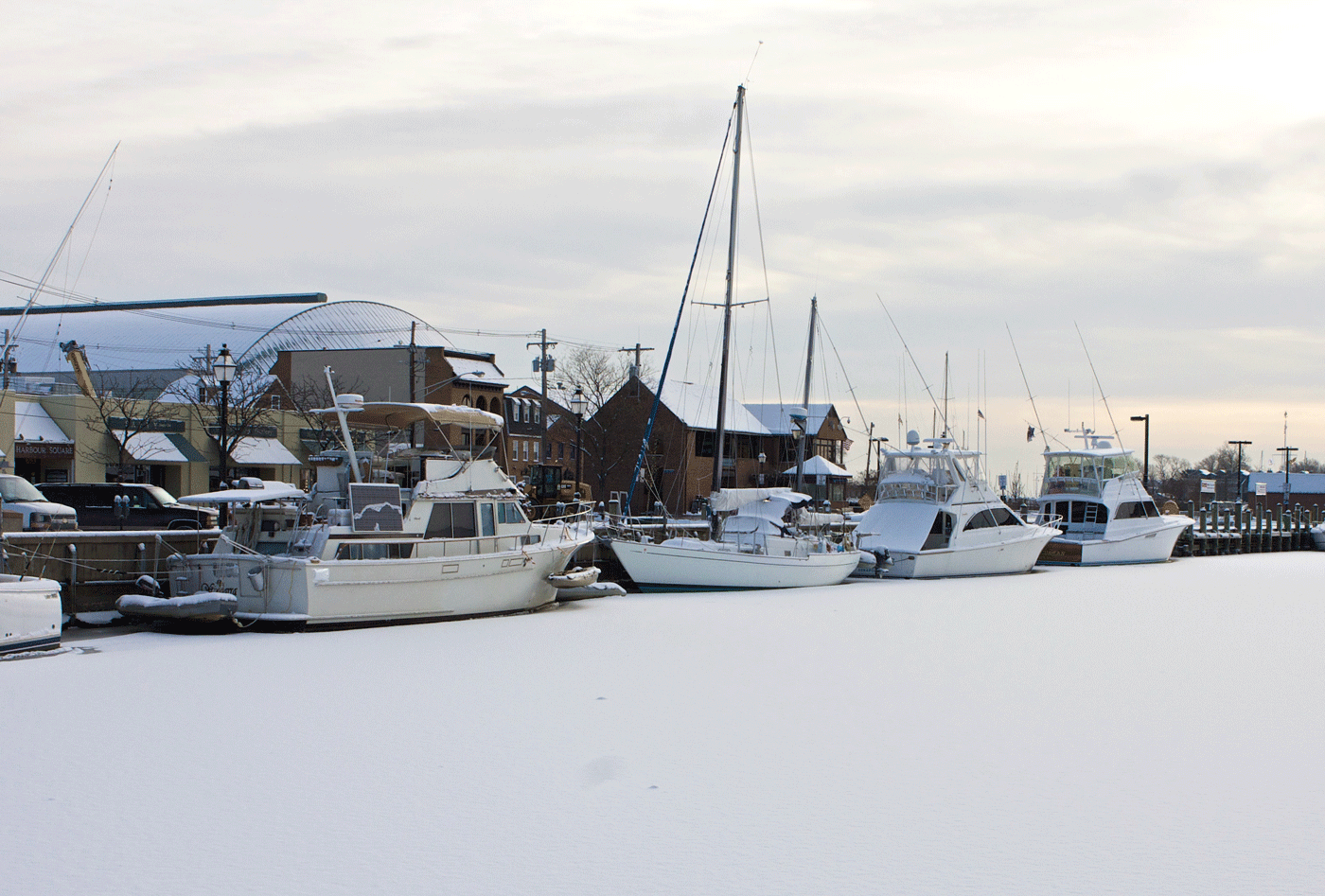
Step 6: Ensure safety
Before storing your boat for winter, take some time to ensure that everything is working properly and there are no safety hazards. This means checking the bilge pump and bilge blower, making sure that the running lights are in good condition, and testing all batteries to make sure they still hold a charge. If you notice anything that needs to be repaired or replaced, do it before putting the boat away for winter.
If you follow these steps, you can rest assured that your boat will be well-prepared for winter storage, enabling you to hit the water again as soon as spring rolls around. So get started today by flushing and rinsing your engine, cleaning and drying your hull, and covering your boat with a tarp or shrink wrap. With a little time and effort, your boat will be ready for another season of exciting adventures on the water!
13 Points to Consider When Preparing Your Boat for Winter Storage
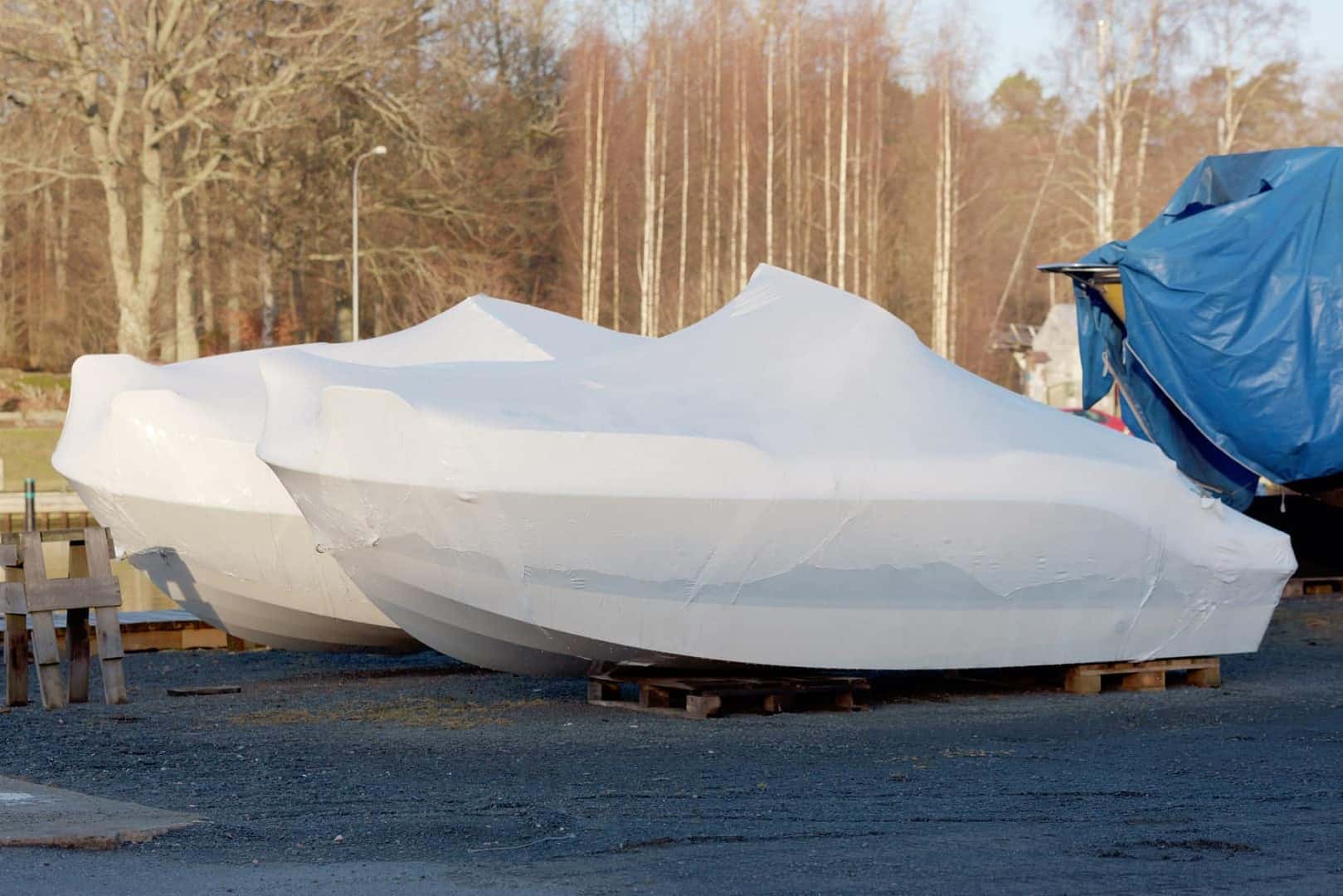
13 Points to Consider When Preparing Your Boat for Winter Storage
Keeping Your Boat on a Trailer at Home
Whether you keep your boat at a marina or on a trailer at home, there are important steps to take in order to prepare it for winter storage. Here are some things to consider when preparing your boat for the cold months ahead.
1. Inspect your boat and trailer thoroughly, looking for any potential damage that may need to be repaired before winter storage. This includes checking the hull, keel, rudder, propeller, engine, and any other parts of your boat that may be susceptible to wear and tear during the off-season.
2. Make sure all of your boat’s systems are functioning properly before storing it away for the winter. This includes checking battery levels and ensuring that there is fresh fuel in the tank.
3. Clean your boat thoroughly, inside and out, before winter storage. This will help prevent mold and mildew from growing during the off-season and also make it easier to inspect for any potential damage or wear and tear.
4. Protect your hull with a coat of wax or sealant before storing your boat for the winter. Depending on where you live, additional measures may be necessary to protect your hull from road salt and other damaging elements that can accumulate when your boat is stored outdoors on a trailer.
5. Empty all water tanks that are connected to the plumbing system in order to prevent freezing during the cold months ahead. You may also want to flush out your pipes and drains with soapy water to prevent clogs.
6. Remove all food and perishables from your boat before winter storage. This includes anything that is stored in the refrigerator, freezer, or pantry.
7. Disconnect any electronics that are on board your boat before storing it for the winter. This includes items such as televisions, radios, and computers.
8. Take down any canvas or sails that are on board your boat before winter storage to prevent them from becoming damaged by the elements.
9. Check your boat’s insurance policy to make sure it is up to date and will cover you during the off-season. You may also want to consider investing in a storage insurance policy to protect your boat while it is in storage.
10. Make a list of all the items you need to do in order to prepare your boat for winter storage. This will help you stay organized and make sure that you don’t forget anything important.
11. Gather all the supplies you need for winter storage, such as tarps, ropes, and bungee cords.
12. If you plan on storing your boat outdoors on a trailer, make sure the tires are inflated properly and the trailer is securely hitched to your vehicle.
13. Most importantly, consult with a professional if you have any questions or concerns about preparing your boat for winter storage. They can help you determine the best course of action for protecting your investment during the off-season.
When preparing your boat for winter storage, it is important to take steps to protect it from the elements and ensure that all of its systems are functioning properly. This may include cleaning your hull and keel, waxing or sealing the hull, flushing out your pipes and drains, removing food and perishable items from your boat, and checking your insurance policy to make sure you have the coverage you need. Additionally, it is crucial to consult with a professional who can guide you through the process of preparing your boat for winter storage and answer any questions you may have along the way. With these tips in mind, you can help ensure that your boat stays safe and well-protected during the off-season.
Keeping Your Boat in Your Garage at Your Residence
1. Park your boat in your garage as close to the door as possible. This will give you more space to work on it and make it easier to move in and out of the garage.
2. Cover your boat with a tarp or plastic sheeting to protect it from dust, dirt, and debris.
3. disconnect any electronics that are on board your boat before storing it in your garage. This includes items such as televisions, radios, and computers.
4. Take down any canvas or sails that are on board your boat before storing it in your garage to prevent them from becoming damaged by the elements.
5. Inspect your boat for any potential damage or wear and tear before storing it for the winter. This includes checking the hull, keel, and sails for any cracks, holes, or tears.
6. Repair any damage that you find before storing your boat for the winter. This will help prevent further damage from occurring and help keep your boat in good condition.
7. Clean your boat thoroughly before storing it in your garage. This includes washing the hull, deck, and interior of your boat with soap and water.
8. Make sure all of the compartments on your boat are dry before storing it in your garage. This includes the bilge area, storage compartments, and cabinets.
9. Place a dehumidifier in your garage to help prevent moisture buildup inside of your boat.
10. Cover any openings on your boat, such as ports, hatches, and vents, with plastic wrap or tape to keep out moisture and pests.
11. Invest in a boat storage lift to keep your boat off the ground and away from potential flooding.
12. Most importantly, consult with a professional if you have any questions or concerns about storing your boat in your garage. They can help you determine the best course of action for protecting your investment during the off-season.
When storing your boat in your garage, it is important to take steps to protect it from the elements and ensure that all of its systems are functioning properly. This may include covering your boat with a tarp or plastic sheeting, disconnecting any electronics that are on board, taking down any canvas or sails, and inspecting your boat for any potential damage. Additionally, it is crucial to consult with a professional who can guide you through the process of storing your boat in your garage and answer any questions you may have along the way. With these tips in mind, you can help ensure that your boat stays safe and well-protected during the off-season.
Dedicated Boat Storage is available (Dry Stacked Storage)
1. Find a reputable storage facility that offers dry stacked storage for boats.
2. Make sure the facility is clean and well-maintained.
3. Ask about the security measures that are in place to protect your boat while it is being stored.
4. Make sure the facility has insurance in case of any damage to your boat while it is in their care.
5. Ask about the fees associated with storing your boat at the facility.
6. Most importantly, consult with a professional if you have any questions or concerns about storing your boat at a dedicated storage facility. They can help you determine if this option is right for you and guide you through the process of preparing your boat for storage. With the right preparation and planning, you can ensure that your boat is well-protected during the off-season.
Boat Preparation in Advance of a Prolonged Boating Season

Boat Preparation in Advance of a Prolonged Boating Season
1. Check the hull, keel, and sails for any cracks, holes, or tears.
2. Repair any damage that you find before storing your boat for the winter. This will help prevent further damage from occurring and help keep your boat in good condition.
3. Clean your boat thoroughly before storing it in your garage. This includes washing the hull, deck, and interior of your boat with soap and water.
4. Make sure all of the compartments on your boat are dry before storing it in your garage. This includes the bilge area, storage compartments, and cabinets.
5. Place a dehumidifier in your garage to help prevent moisture buildup inside of your boat.
6. Cover any openings on your boat, such as ports, hatches, and vents, with plastic wrap or tape to keep out moisture and pests.
7. Invest in a boat storage lift to keep your boat off the ground and away from potential flooding.
8. Most importantly, consult with a professional if you have any questions or concerns about storing your boat in your garage. They can help you determine the best course of action for protecting your investment during the off-season.
When storing your boat in your garage, it is important to take steps to protect it from the elements and ensure that all of its systems are functioning properly. This may include covering your boat with a tarp or plastic sheeting, disconnecting any electronics that are on board, taking down any canvas or sails, and inspecting your boat for any potential damage. Additionally, it is crucial to consult with a professional who can guide you through the process of storing your boat in your garage and answer any questions you may have along the way. With these tips in mind, you can help ensure that your boat stays safe and well-protected during the off-season.
Prepare your boat for winter storage in Canada by following these steps
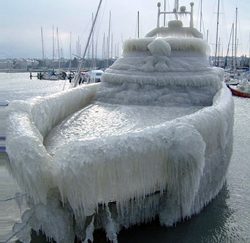
Prepare your boat for winter storage in Canada by following these steps
1. Find a reputable storage facility that offers dry stacked storage for boats. This will help protect your boat from the elements and ensure that it is properly secured.
2. Make sure the facility is clean and well-maintained. This will help reduce the risk of damage to your boat while it is in storage.
3. Ask about the security measures that are in place to protect your boat while it is being stored. This will help you feel confident that your boat is safe while it is not in use.
4. Make sure the facility has insurance in case of any damage to your boat while it is in their care. This will give you peace of mind knowing that you are covered in the event of an accident.
5. Ask about the fees associated with storing your boat at the facility. This will help you budget for the cost of winter storage.
6. Most importantly, consult with a professional if you have any questions or concerns about storing your boat at a dedicated storage facility. They can help you determine if this option is right for you and guide you through the process of preparing your boat for storage. With the right preparation and planning, you can ensure that your boat is well-protected during the off-season.
Plan ahead for winter storage by doing it yourself
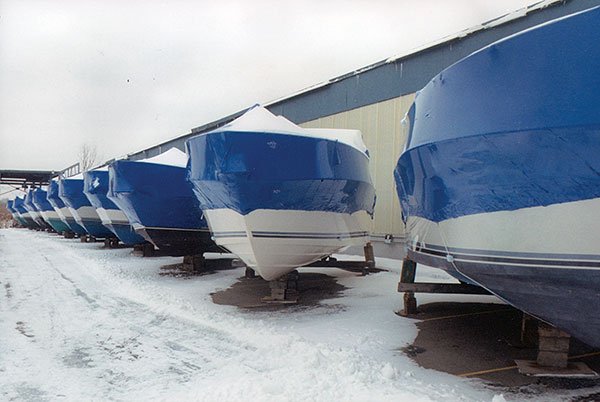
Plan ahead for winter storage by doing it yourself
The advantages of doing it yourself are that you can save money and have more control over the process.
1. Choose a location that is well-ventilated and away from any heat sources to avoid any potential fire hazards.
2. Make sure the area is clean and free of any debris that could damage your boat.
3. Cover your boat with a tarp or plastic sheeting to protect it from the elements.
4. Disconnect any electronics that are on board and remove any batteries.
5. Take down any canvas or sails to prevent them from becoming damaged during storage.
6. Inspect your boat for any potential damage and make repairs as necessary. This will help prevent further damage from occurring while your boat is in storage.
7. Finally, consult with a professional if you have any questions or concerns about storing your boat yourself. They can provide guidance and recommendations to help ensure that the process is done correctly and safely. With the right preparation and planning, you can prepare your boat for winter storage on your own and save money in the process.
Maintaining your boat’s fuel and water systems is essential for winter storage

Maintaining your boat’s fuel and water systems is essential for winter storage
1. Add a fuel stabilizer to your boat’s gas tank to help prevent fuel degradation and keep the engine in good working condition.
2. Drain the water from your boat’s system and add an antifreeze solution to help protect against freezing temperatures.
3. Inspect all of the hoses and fittings on your boat for any potential leaks or damage. This will help prevent any further issues from occurring while your boat is in storage.
4. Finally, consult with a professional if you have any questions or concerns about maintaining your boat’s fuel and water systems during winter storage. They can provide guidance and recommendations to help ensure that the process is done correctly and safely. With the right preparation and planning, you can maintain your boat’s fuel and water systems during off-season storage and keep it in good condition for the coming season.
Winterization that is friendly to the environment and your boat

Winterization that is friendly to the environment and your boat
1. Use environmentally-friendly or biodegradable antifreeze solutions to protect your boat’s water system from freezing temperatures. This will help reduce the risk of environmental damage and ensure that your boat is protected during storage.
2. Clean, wax, and polish your boat before winter storage to help prevent corrosion and other types of damage while it is in storage.
3. Inspect all hoses and fittings on the outside of the boat for any potential leaks or damage. This will help reduce the risk of moisture infiltration into sensitive areas while your boat is in storage.
4. Finally, consult with a professional if you have any questions or concerns about protecting your boat during winterization. They can provide guidance and recommendations to help ensure that the process is done correctly and safely. With the right preparation and planning, you can winterize your boat in an environmentally-friendly way that will help protect it during storage.
Solutions for storing items during the winter

Solutions for storing items during the winter
1. Choose a storage location that is dry, well-ventilated, and out of direct sunlight to help prevent any damage to your belongings.
2. Place all items in airtight containers or bags to help prevent moisture damage.
3. Label all containers with the contents and date to help keep track of what is inside.
4. Finally, consult with a professional if you have any questions or concerns about storing items during the winter. They can provide guidance and recommendations to help ensure that the process is done correctly and safely. With the right preparation and planning, you can store your belongings safely during the winter months.
F.A.Q about “How to prepare your boat for winter storage”
I’m curious about the products you use to prepare your vessel for cold weather.
Prepare for boating in cold water by always wearing a PFD that is securely fastened to your body. Wearing layers of clothing will also help to keep you warm. Equip your boat with a means of re-entry (ladder, sling, or other similar device) in case you should fall into the water while sailing.
Should you remove the batteries from your yacht for the winter?
Batteries should be removed and stored in a cool, dry location where they will not freeze. Recommended for use on wood surfaces, such as those found in garages or storage facilities. Ideally, batteries should be trickle charged or recharged on a monthly basis. This avoids self-discharge and increases the lifespan of the battery.
Is it permissible to leave a boat outside throughout the winter?
If you want to keep your boat outside over the winter, it is certainly achievable. Regardless of whether you choose to do so, it is critical that you totally remove your boat from the water since ice and extremely cold water can cause significant damage to your boat.
What is the best way to prepare a boat for the season?
A few of the most crucial items to put on your list are as follows:
- Cleaning chores of a general kind (hull, deck, topsides)
- Drains should be checked for obstructions.
- Wash your boat and apply a coat of wax to keep the paint from fading.
- Clean and re-oil your wood finishes to keep them looking their best.
- Fixtures such as windows, hatches, blinds, and any other sections should be well cleaned.
Is it safe to leave a trickle charger running throughout the winter?
Trickle chargers are capable of being left connected to a battery for an infinite period of time. These would be utilized on a vehicle that is not used on a regular basis or that is being stored for the winter or the summer months. In the event that the vehicle is required in an emergency or other unplanned situation, a trickle charger designed expressly for this purpose is left on overnight.
Conclusion
Winter storage is an important part of boat ownership, and if done correctly can help your boat stay in good condition for years to come. By following these simple steps, you can make the process as easy and stress-free as possible. Have a safe and happy winter!
This discoverthedinosaurs.com post will show the information about “How to prepare your boat for winter storage? 15 Points to Consider When Preparing Your Boat for Winter Storage”



